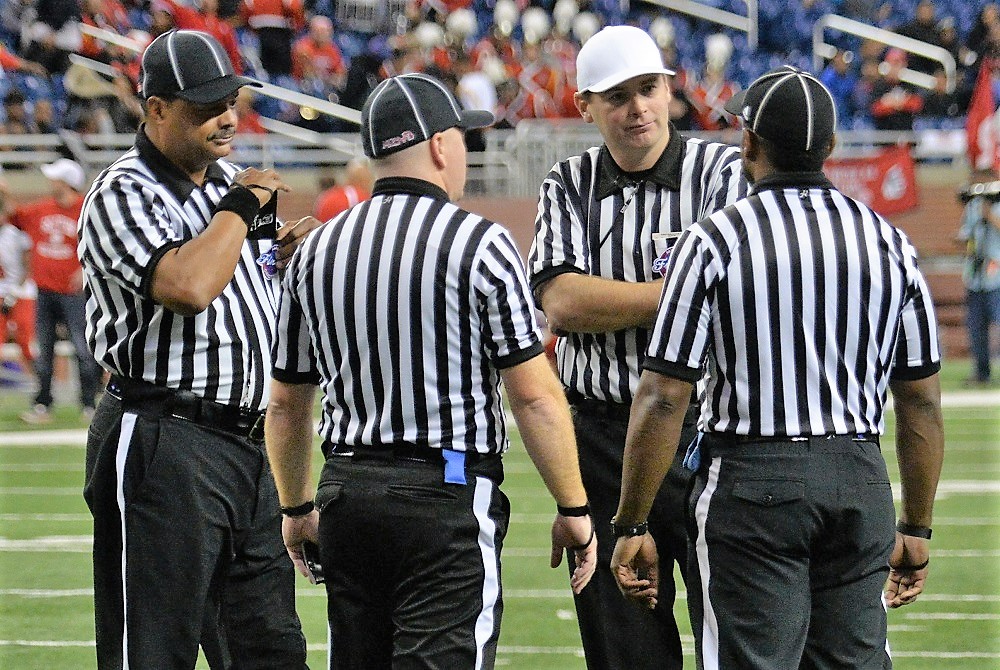
Be the Referee: Penalty Kick Change
October 6, 2016
This week, MHSAA assistant director Mark Uyl explains how soccer penalty kick rules have been changed this year to dissuade players from hesitating before taking the kick.
Be The Referee is a series of short messages designed to help educate people on the rules of different sports, to help them better understand the art of officiating, and to recruit officials.
Below is this week's segment – Soccer Penalty Kick Change - Listen
In the game of soccer, goals are tough to come by. That’s why in some of the most important games, we see those contests head into overtime and ultimately get decided by penalty kicks – or P-Ks.
The rules dealing with penalty kicks have changed for this year. In years past, whenever a player would hear the referee’s whistle and start to move toward the ball to make a penalty kick, any hesitation, delay or stutter-step would make that kick illegal. In past years, that player always got an opportunity to take a re-kick.
But this year, there is no opportunity for that player to take an additional re-kick.
Past editions
Sept. 29: Preparation for Officials - Listen
Sept 22: You Make the Call: Returning Kickoffs - Listen
Sept. 15: Concussions - Listen
Sept 8: Equipment Covering the Knees - Listen
Sept. 1: Play Clock Experiment - Listen
Aug. 25: Clipping in the Free Blocking Zone - Listen

Be the Referee: Safety in End Zone
By
Geoff Kimmerly
MHSAA.com senior editor
October 11, 2022
Be The Referee is a series of short messages designed to help educate people on the rules of different sports, to help them better understand the art of officiating, and to recruit officials.
Below is this week's segment – Safety in End Zone - Listen
Team A has the ball on its own 3-yard line – facing a 4th-and-10. The quarterback drops back into the end zone, and just before he’s about to be sacked, he throws the ball away.
Out comes the flag for intentional grounding – which would give the defense two points and force Team A to kick off. But the coach of the team on defense would rather decline the penalty and take over at the 3-yard line. Can he do that?
Not exactly.
While he can decline the penalty, the result of the play is the same. A safety for the defense. If the penalty is accepted, the enforcement is from the end zone resulting in a safety. Incomplete illegal passes end the play where the pass is made, so even if the penalty is declined, it’s a safety because the play ended behind the goal line.
Previous Editions:
Oct. 4: Football Overtime Penalty - Listen
Sept. 27: Kickoff Goal - Listen
Sept. 20: Soccer Timing - Listen
Sept. 13: Volleyball Replays - Listen
Sept. 6: Switching Sides - Listen
Aug. 30: Play Clock - Listen
Aug. 23: Intentional Grounding Change - Listen

